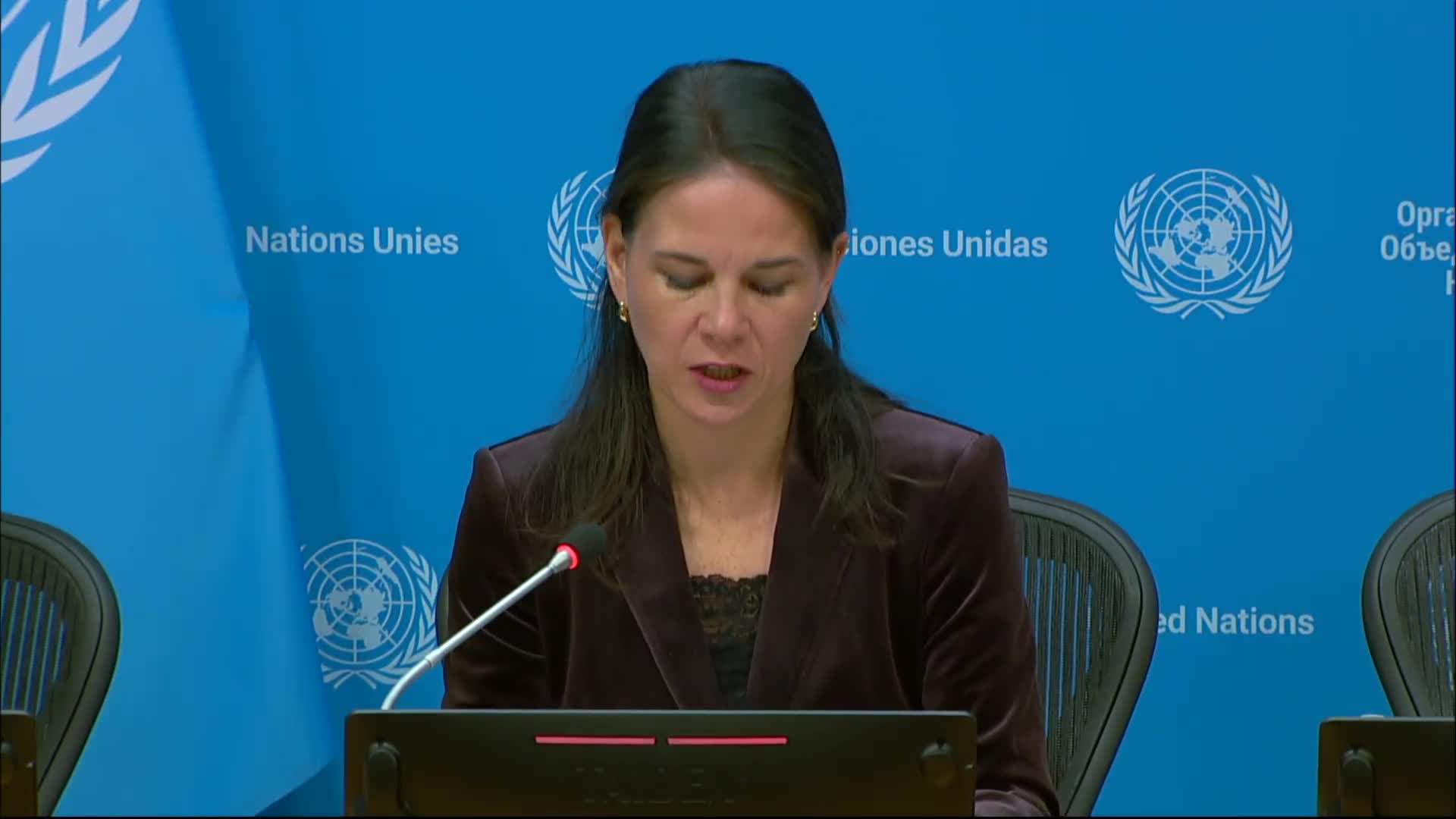UN leaders, Qatar outline goals for World Summit for Social Development in Doha
Get AI-powered insights, summaries, and transcripts
Subscribe
Summary
Speakers at a United Nations press briefing said the Nov. 4'6 summit in Doha will press for poverty reduction, universal social protection, education access and links between social justice and peace and security, with an emphasis on turning commitments into measurable action through a Doha political declaration and follow-up mechanisms.
United Nations General Assembly President Annalena Birbock and Qatar's permanent representative to the United Nations, Alia Bin Saif Altani, told reporters in New York that the second World Summit for Social Development will convene Nov. 4'6 in Doha with the aim of renewing global commitments to reduce poverty and expand social protection.
The summit, the first of its kind in 30 years, will center on a Doha political declaration organizers said is expected to be adopted on day one and that emphasizes poverty reduction, full and productive employment, decent work, social inclusion and implementation, follow-up and review. "Without social justice, there will never be long lasting peace and security," Birbock said.
Why it matters: the summit occurs amid uneven progress on the U.N.'s Sustainable Development Goals. Birbock cited long-term gains since the 1995 Copenhagen summit, saying the share of people living in extreme poverty fell from roughly 30 percent of humanity to about 10 percent, but added that "over 800,000,000 people still live in extreme poverty." She called the summit an opportunity to move from "headlines to action" and to marshal investments and partnerships that deliver on education, decent jobs for youth, universal social protection and inclusive technological access.
Qatar, the host, previewed the summit programme and participation. Altani said Doha expects more than 8,000 participants from member states, U.N. entities, civil society, academia, employers and youth. Highlights she identified include the first leaders meeting of the Global Alliance against Hunger and Poverty, a solutions forum for social development, a high-level education event, and both private sector and civil society forums intended to translate commitments into measurable actions.
Speakers and questions at the briefing repeatedly linked social development to peace and security. When asked whether the summit would touch on Gaza and Qatar's role there, Altani said the subject "will come within the context of the summit," noted Doha's engagement in ceasefire efforts and said organizers intend to use the summit as a platform to address socioeconomic dimensions of conflict, including education and humanitarian access.
The briefing also addressed the causes behind stalled progress toward the SDGs. Birbock said setbacks include the COVID-19 pandemic, active conflicts and political choices that affect resource allocation, and she warned that failing to pursue the goals would have severe consequences for people living in poverty. She urged member states, businesses and investors to partner on targeted, on-the-ground investments and to protect U.N. budgets and agencies that deliver services, citing UNICEF and UNRWA as examples of agencies whose funding affects schooling and humanitarian services.
Organizers said the Doha political declaration contains stronger language on implementation, and that the summit will begin a follow-up process that includes a high-level review scheduled for 2031. They invited media to attend press briefings planned during the three summit days and advised that the full programme is available on the summit website.
